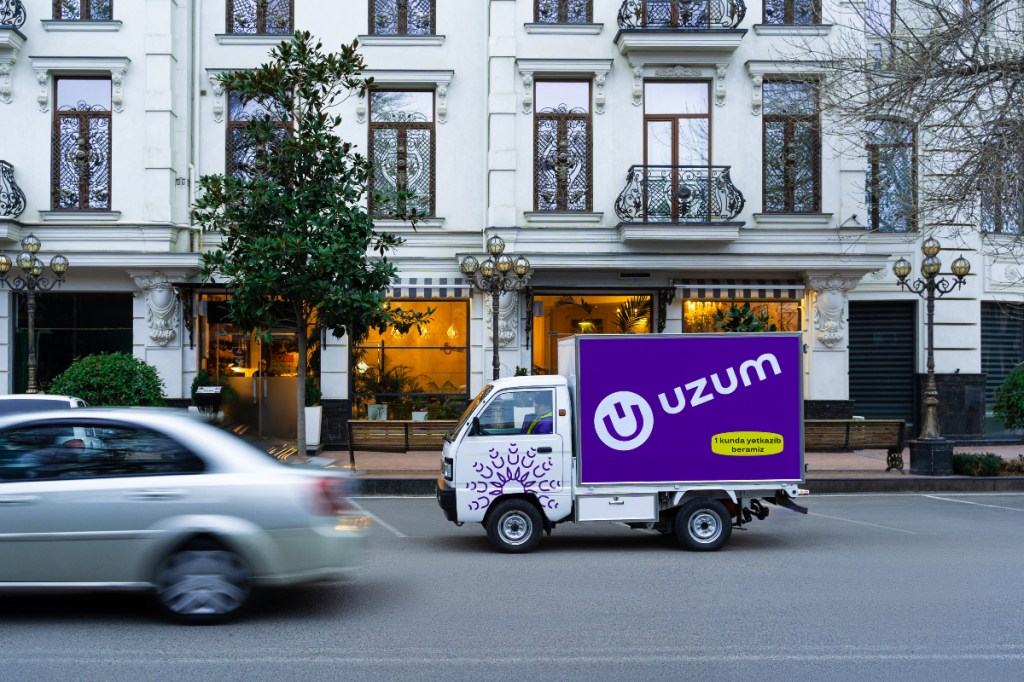Uzum, an e-commerce startup offering online shopping, fintech and food deliveries to millions of customers in Uzbekistan, has raised $114 million in funding, becoming the country’s first unicorn with a valuation of $1.16 billion.
Uzbekistan is fertile ground for startups, given the fact that people aged below 30 constitute about 60% of its population of over 35 million. The country also enjoys a near 100% literacy rate (according to its government), more than 76% internet penetration, and over 75% smartphone penetration rate. In 2020, the Central Asian nation had nearly 1,200 startups, 85% of which were at the seed stage. Fintech startups dominated the market with a 30% share, followed by e-commerce startups at 27%, according to estimates (PDF) by the Asian Development Bank.
However, the country seems to have a shocking lack of e-commerce services, which may be among the reasons why the sector accounted for only 2.2% of Uzbekistan’s total retail market as of December 2022, per a report (PDF) by KPMG. According to Uzum’s co-founder and CEO, Djasur Djumaev, Uzbeks used to primarily shop online through social media apps such as Instagram, TikTok and Telegram. Customers connected with sellers in groups on social platforms, who had limited stock-keeping units (SKUs) and no logistics to speak of.
“It was a surprise for us to see that the penetration of smartphones was high and telecom infrastructure was in place, but there was no e-commerce, no proper fintech,” Djumaev told TechCrunch.
Djumaev clearly saw the potential for a company to do in Uzbekistan what Amazon has done in a lot of other countries: offer a cohesive marketplace that promises end-to-end logistics and delivery. Uzum started by setting up its logistics, a fleet, and established pickup points to offer next-day deliveries. The marketplace was launched in October 2022, and today, it has more than 8 million monthly active users and over 9,000 merchants selling 600,000+ SKUs. In contrast, the biggest street bazaar in the country has about 70,000 SKUs on any given day, according to Nikolay Seleznev, chief strategy and business development officer at Uzum. In its first full year of operations, the startup recorded gross merchandise value (GMV) of $150 million and expects run-rate GMV to reach at least $300 million this year.
Shortly after its success with the marketplace, Uzum forayed into fintech with a buy now, pay later (BNPL) product. About 45% to 50% of its e-commerce transactions are done via the BNPL solution, Djumaev said. Uzum has also entered the food delivery business and set up a digital bank to bolster its growth.
“Because we attract customers on e-commerce, we retain them on high-transaction businesses like daily banking, which is 100% digital. We monetize them on our lending or credit products, which are 100% Sharia-compliant, which is also very appealing to at least 85% of the population in Uzbekistan,” Seleznev told TechCrunch.
The Series A round, comprising $52 million in equity and the remaining $62 million in debt, was led by FinSight Ventures and saw participation from Xanara Investment Management and Uzum’s senior management. Uzum has diluted less than 5% to investors participating in the Series A round, which is the startup’s first external funding. The startup also plans to raise about $200 million in a Series B round this year from investors in the Middle East, U.K. and the U.S.
Uzum plans to use two-thirds of the fresh funding for its fintech business and one-third for the e-commerce arm. There are plans to launch new products for unsecured lending to individuals as well as small- and medium-sized enterprises and invest in its own IT and logistics infrastructure.
“We want to expand the products, enhance the infrastructure of our e-commerce, and fund our fintech,” Djumaev said.
Seleznev said the startup intends to expand its GMV by 150% to 200%, grow its credit portfolio at least two times, and increase the total payment volume circulated through its ecosystem.
By the end of this year, Uzum plans to combine all its businesses into two super apps: one for its consumer-focused offerings and another for its business-focused products. It also aims to launch the country’s “largest” logistics complex for e-commerce in June, planned to span 112,000 square meters initially, and expanded to over 500,000 square meters in the next few years.
Djumaev said a few companies globally operate similarly to Uzum and named Latin America’s Nubank and Kazakhstan’s Kaspi.kz. However, he doesn’t see any competition in Uzbekistan, as Uzum has the advantage of enjoying different margins across products and can make higher margins by combining its e-commerce and fintech services.
“We witnessed the success of Kaspi.kz in creating a super app in neighboring Kazakhstan, and we are confident that Uzum, which has the necessary talent, resources and products, will repeat this success to become a national tech leader in Uzbekistan,” said Alexey Garyunov, managing partner of FinSight Ventures, in a prepared statement.































Comment